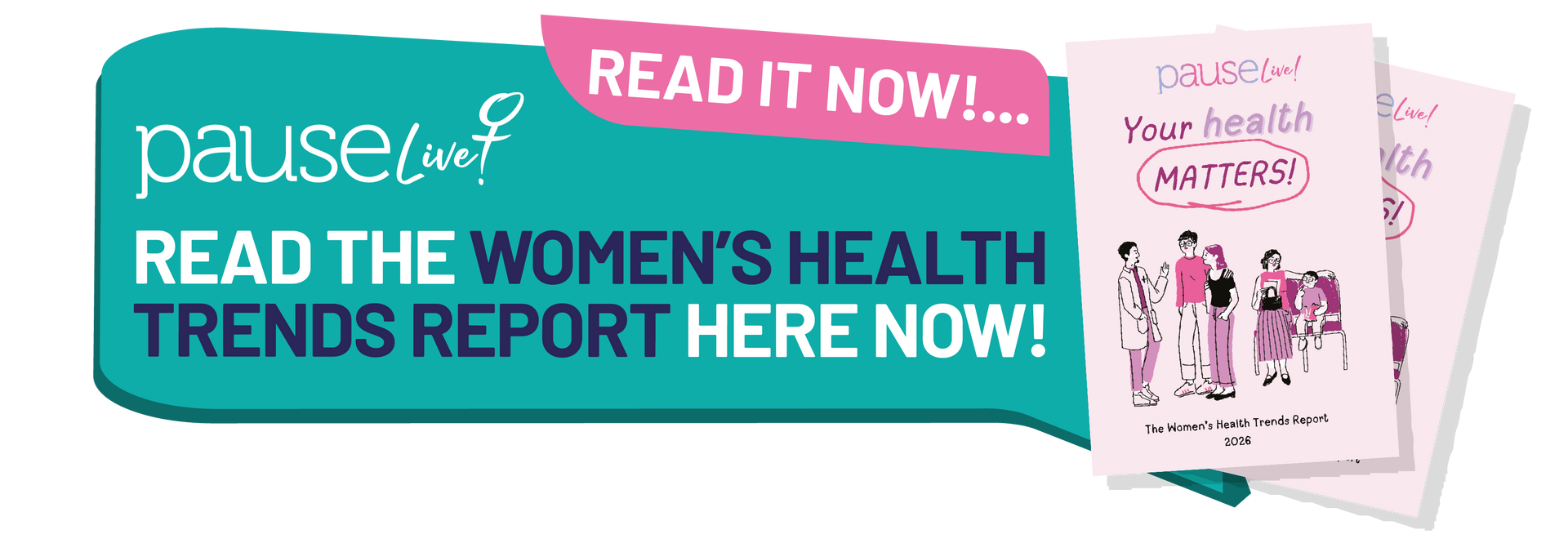Why Midlife Women Are Struggling With Emotional Wellbeing – And What We Can Do About It
We talk to Nutritionist and Alison Bladh about the mental load we carry as females and how this impact our lives and minds.
For too many women over 40, there’s a quiet battle going on behind the scenes. From the outside, you may seem like you’ve got it all under control, juggling work, caring responsibilities, relationships, ageing parents and a million tabs open in your mind. But inside? It can feel like everything’s unravelling. The anxiety. The mood swings. The tears that come out of nowhere. The mental exhaustion.
The truth is, most of us were never told that this phase of life could take such a toll on our emotional health.

As a nutritional and beauty therapist specialising in women’s health, I’ve spent over 30 years supporting women through this often-overlooked chapter of life. I’m deeply passionate about helping women understand what’s really going on in their bodies and their minds because I’ve seen firsthand how transformative the right support can be.
So, during Mental Health Awareness Week, let’s have an honest conversation about what’s really going on with women’s mental and emotional wellbeing in midlife and beyond and more importantly, what you can do to feel like yourself again.
“You’re not too emotional. You’re not overreacting. Your hormones are changing and your mental health matters just as much as your physical health.”
The Unspoken Mental Load of Midlife
Midlife for women can be a perfect storm. Not only are there hormonal changes affecting your brain chemistry, but there’s also the life stuff that piles up:
- Teenagers or adult children needing you in new ways
- Elderly parents requiring support
- Relationship shifts or divorce
- Work stress, redundancy, or a lack of purpose
- And a deep, internal shift that’s hard to describe, a questioning of who you are and what comes next
The result? Many women feel flat, anxious, overwhelmed and irritable but they often keep it to themselves, thinking they just need to “get on with it.”
What’s Really Going On? (Hint: It’s Not All in Your Head)
Let’s talk hormones. Oestrogen, progesterone and testosterone aren’t just about periods and reproduction they affect your brain, mood, memory, motivation and even how resilient you feel.
- Oestrogen plays a role in serotonin and dopamine, your feel-good brain chemicals. When levels drop, it can trigger low mood, irritability and anxiety.
- Progesterone, often called the calming hormone, helps you relax and sleep. As it fluctuates, many women feel more wired, restless or weepy.
- Cortisol, your main stress hormone, can become dysregulated, especially if you’re constantly running on empty.
But those aren’t the only players in the hormonal mix. During perimenopause, menopause and postmenopause, the body also experiences changes in:
- Insulin, the hormone that manages blood sugar. As oestrogen declines, insulin sensitivity can reduce, making blood sugar more volatile which impacts mood, energy and cravings. Big blood sugar swings are closely linked with anxiety, fatigue and brain fog.
- Thyroid hormones, which control your metabolism and influence how energised, calm or mentally sharp you feel. Fluctuations in oestrogen can affect how well your thyroid functions and undiagnosed or borderline thyroid issues are common in women over 40.
- Testosterone, which supports motivation, confidence and drive. It naturally declines with age and low levels can contribute to flat mood, lack of focus and even loss of libido or zest for life.
When these systems are out of balance, it can feel like your brain and body are working against you.
No wonder so many women over 40 say things like:
“I just don’t feel like myself anymore.”
“I’m fine one minute and overwhelmed the next.”
“I’m exhausted, but I can’t sleep.”
This isn’t weakness. It’s biology. But you don’t have to just put up with it.
Can Hormonal Changes Cause Anxiety and Mood Swings in Women Over 40?
Absolutely. Shifts in oestrogen, progesterone, insulin and thyroid hormones can all contribute to emotional and mental health challenges in midlife. Recognising these changes is the first step to getting the right support.
Common Mental Health Symptoms Women Over 40 Experience (But Don’t Always Recognise as Hormonal)
• Feeling constantly overwhelmed or anxious
• Sudden mood swings or unexplained irritability
• Brain fog, forgetfulness or loss of focus
• Low self-esteem and body image struggles
• Rage or anger that feels out of proportion
• Feeling disconnected, numb or joyless
• Trouble sleeping or waking in the early hours
• A sense of being “on edge” all the time
These can creep in slowly, which is why many women don’t link them to hormonal changes. But once you understand the connection, you can start to take action.
What You Can Do to Feel Better — My Evidence-Based, Real-Life Tips
As a women’s health expert and nutritional therapist specialising in perimenopause, menopause and beyond, I’ve supported hundreds of women who felt like they were barely coping. Fatigue, mood swings, anxiety and emotional burnout are common themes but they’re not personal failings.
The reality is, hormonal changes in midlife, combined with modern life stressors, can significantly affect your mental and emotional wellbeing. But there are practical, evidence-based strategies that can make a real difference. Here’s where to start:
1.Balance Your Blood Sugar for Better Mood Stability
Blood sugar imbalances are a hidden cause of anxiety, irritability and emotional crashes in women over 40. As insulin sensitivity declines with hormonal shifts, erratic blood sugar can lead to low mood and fatigue.
➤ Try this: Eat protein, healthy fats and fibre with every meal. Skip the coffee-and-toast breakfast and opt for eggs, Greek yoghurt or chia pudding. Stabilising blood sugar is one of the most effective ways to support emotional balance in perimenopause and menopause.
2. Support Brain Health and Hormones With the Right Nutrients
Your brain needs high-quality nutrition to regulate mood and cope with stress. Nutrient deficiencies especially in B vitamins, magnesium, omega-3s and zinc are common in women 40+ and can worsen anxiety and low mood.
➤ Try this: Include omega-3 rich foods like oily fish, walnuts or flaxseeds. Add leafy greens, seeds and a B-complex supplement to support nervous system health. These nutrients are vital for mental clarity, hormone balance and emotional wellbeing.
3. Prioritise Restorative Sleep to Reduce Anxiety and Overwhelm
Sleep disruption during menopause is common often due to low progesterone, elevated cortisol, or blood sugar instability. Poor sleep impacts your mood, memory and stress resilience.
➤ Try this: Create a calming bedtime routine. Avoid screens an hour before bed, stick to a regular bedtime and consider taking magnesium glycinate in the evening to support relaxation. If sleep issues persist, it may be worth checking for thyroid dysfunction or cortisol imbalance. HRT can also help improve sleep quality for some women.
4. Use Movement to Boost Mental Health and Resilience
Regular physical activity supports hormone balance, reduces cortisol and improves mood by releasing endorphins. But it doesn’t need to be intense or time-consuming.
➤ Try this: Choose gentle exercise that makes you feel good, walking, Pilates, strength training, yoga or dancing. Just 10–15 minutes a day can improve emotional stability and help manage menopause-related anxiety.
5. Create Mental Space and Calm an Overactive Mind
The constant demands and “mental load” many women carry can keep your nervous system stuck in fight-or-flight mode. Slowing down can help regulate stress hormones and reduce overwhelm.
➤ Try this: Start the day with 5 minutes of stillness, journaling, deep breathing or gentle stretching. These simple practices can help create calm and clarity amidst the chaos.
6. Learn to Say No And Mean It
Stress management for women over 40 often starts with boundaries. Agreeing to everything means you ignore your own needs, which can quickly lead to exhaustion.
➤ Try this: Start using phrases like “I’m not available for that right now.” Block time in your week for non-negotiables like rest, movement or silence. Saying no is not selfish, it’s self-preservation.
7. Don’t Go It Alone. Reach Out for Support
Many women suffer in silence, thinking they should “just get on with it.” But emotional health in midlife is not something you have to manage alone.
➤ Try this: Talk to someone you trust, a therapist, health coach, or supportive friend. If you’ve been feeling consistently low, anxious or detached, please speak to your GP. You may benefit from professional help, counselling, or exploring underlying health issues like thyroid imbalance or low oestrogen.
Put Yourself First and Don’t Feel Guilty About It
If there’s one message I want every woman reading this to take away, it’s this: you matter too. We spend so much of our lives putting others first children, partners, parents, colleagues that it becomes second nature to ignore our own needs. But when your tank is empty, you can’t keep giving.
Putting yourself first doesn’t mean abandoning your responsibilities. It means carving out space to rest, recharge and reconnect with what you need. Whether that’s booking a walk alone, saying no to one more thing on your to-do list, or simply making your own wellbeing a priority, it’s not indulgent, it’s essential.
Do one thing for yourself this week that nourishes you because you’re worth the same care you give so freely to others.
A Final Word on emotional wellbeing in Midlife, Menopause and Beyond
You are not alone and you’re not broken. The emotional shifts you’re feeling are real, valid and biologically rooted in this stage of life. But there are things you can do to feel more grounded, balanced and hopeful again.
From nourishing your body with the right foods to setting boundaries and seeking the right support, mental wellbeing in perimenopause and menopause is absolutely achievable. You just need the right tools and permission to put yourself first.





